The Best Lab Grown Diamond Engagement Ring Settings
Introduction
When it comes to finding the perfect engagement ring, choosing the right setting is just as important as choosing the diamond itself! A beautiful setting not only frames your lab grown diamond, but also tells a story about your style and values. At Valley Rose, we design our engagement rings to celebrate sustainability, craftsmanship, and individuality, so no matter which setting you fall in love with, you can be sure it’s as meaningful as it is beautiful.

Here’s our guide to the best lab grown diamond engagement ring settings to inspire your dream ring:

Solitaire Settings
Sometimes, less really is more. Solitaire engagement rings are beloved for their timeless simplicity, placing the spotlight squarely on a single, brilliant lab diamond. Whether you opt for a classic four-prong setting or a modern bezel style, solitaire rings let your diamond’s natural beauty shine. Minimalists and traditionalists alike will appreciate how this setting feels effortlessly elegant, clean, and completely personal.
A favorite: Our Brisa Oval Diamond Solitaire pairs a stunning oval lab grown diamond with a refined band for a truly iconic look that never goes out of style.

Halo Settings
If you're looking for extra sparkle and a little more drama, a halo setting could be the perfect match. Halo rings feature a circle of smaller diamonds that surround the center stone, instantly amplifying its brilliance and making it look larger. This design catches the light beautifully from every angle and adds a romantic, vintage-inspired touch that feels both classic and modern.
In love with: Our Kristina Halo Diamond Ring, designed to be reminiscent of classic vintage silhouettes and adds celestial magic and dimension to your center diamond.

Three-Stone Settings
Three stone engagement rings are full of symbolism, representing your past, present, and future together. Typically, a larger center diamond is flanked by two smaller stones, creating a beautifully balanced design that's both meaningful and luxurious. Choose classic round stones for a traditional look or mix diamond shapes for something a little more modern and unexpected.
Timeless Pick: Our Valeria Three Stone Ring offers a fresh take on this classic, with ethically sourced radiant cut diamonds that tells your love story in a truly personal way.

Side Diamond Settings
For those who love a little extra shimmer, side diamond settings are a dreamy choice. Tiny, lab grown diamonds set along the band add subtle sparkle without overwhelming the center stone. It’s a gorgeous way to add sophistication and movement to your ring, and a little bit of sparkle goes a long way in creating a captivating design!
Editor’s favorite: The Olivia Diamond Ring with its graduated diamond design looks stunning paired with a larger center stone or even worn solo as a delicate, sparkling statement.

Custom Engagement Ring Options
Your love is one of a kind, and your engagement ring can be too. Custom designs allow you to create a piece that captures your unique vision, from intricate bands and mixed metals to unexpected diamond cuts and heirloom storytelling! Working one-on-one with our lead designer lets you dream up a ring that feels truly yours, with every detail chosen intentionally.

Choosing Your Perfect Setting
When selecting a setting, consider your lifestyle, personal style, and the shape of your diamond. If you’re active, a bezel or low-profile setting can offer more protection. If you're all about vintage charm, a halo or three-stone design might speak to you. And if you lean toward minimalist beauty, a solitaire is always in style and effortlessly chic.
It’s also important to think about the metal choice: white gold, yellow gold and rose gold each bring their own character to your ring, enhancing the design even further.
Every decision you make brings you closer to a piece that feels like an extension of your story. Each Valley Rose engagement ring is crafted with care using ethical diamonds made from air pollution and Sustainably Rated Lab Diamonds, making your symbol of love also a symbol of hope for the planet.
Ready to find your forever ring? Explore our collection of lab grown diamond engagement rings and let your love shine: beautifully, sustainably, and ethically.

FAQs
1. Can lab-grown diamonds be used for engagement rings?
Yes, lab-grown diamonds are perfectly suitable for engagement rings. They are genuine diamonds with identical physical and chemical characteristics as those mined from the earth. Choosing lab-grown diamonds can be a more ethical and cost-effective choice, without sacrificing the aesthetic and quality of the ring.
2. What is the best method for creating lab-grown diamonds?
While both High Pressure High Temperature (HPHT) and Chemical Vapor Deposition (CVD) methods are used to create lab-grown diamonds, CVD diamonds generally achieve higher clarity grades. Diamonds smaller than 1 carat are typically produced using HPHT, as it is more economical. Both methods are capable of producing diamonds with very high clarity, including VVS1 and Flawless (FL) grades.
3. What are the different types of lab-grown diamonds available?
Lab-grown diamonds come in various forms, including:
- Aether Air Lab Diamonds: These are made from carbon pollution captured from the atmosphere, and each carat positively effects our planet.
- HPHT Diamonds: Created using the High Pressure High Temperature process.
- CVD Diamonds: Produced through the Chemical Vapor Deposition method.
- Moissanites: These are white lab-created gemstones that visually resemble diamonds but with more scintillation. They are their own type of gemstone naturally found on meteorites but for those found in jewelry they are made in a lab.
4. Which ring setting can make a diamond appear larger?
Settings that elevate the diamond and allow the most light to enter, such as a high-set prong setting, can make the diamond appear larger. Additionally, choosing a slim band and a halo design around the diamond can also enhance its perceived size. Elongated cuts such as oval, pear, emerald and marquise can also appear larger next to round cuts of the same carat weight.






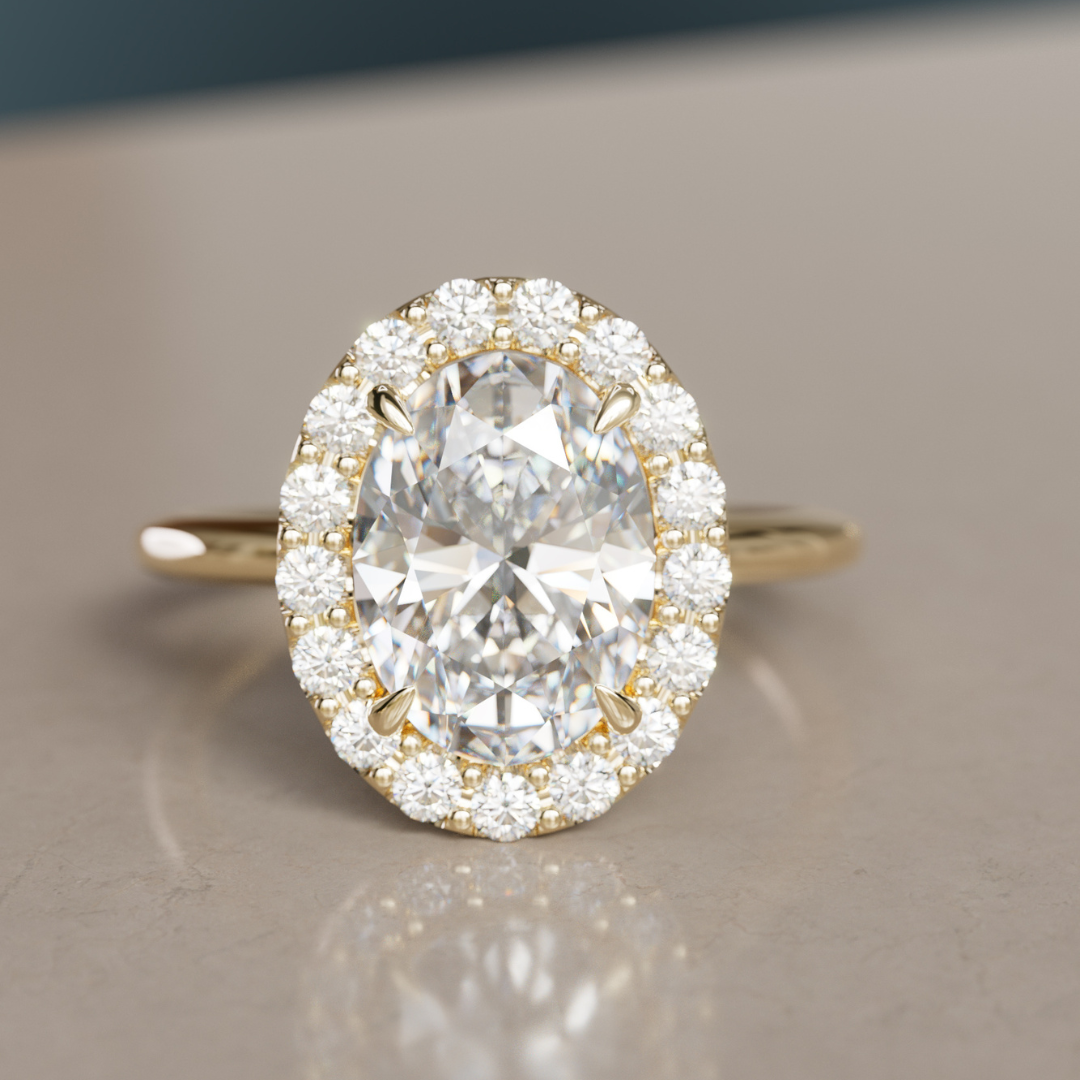
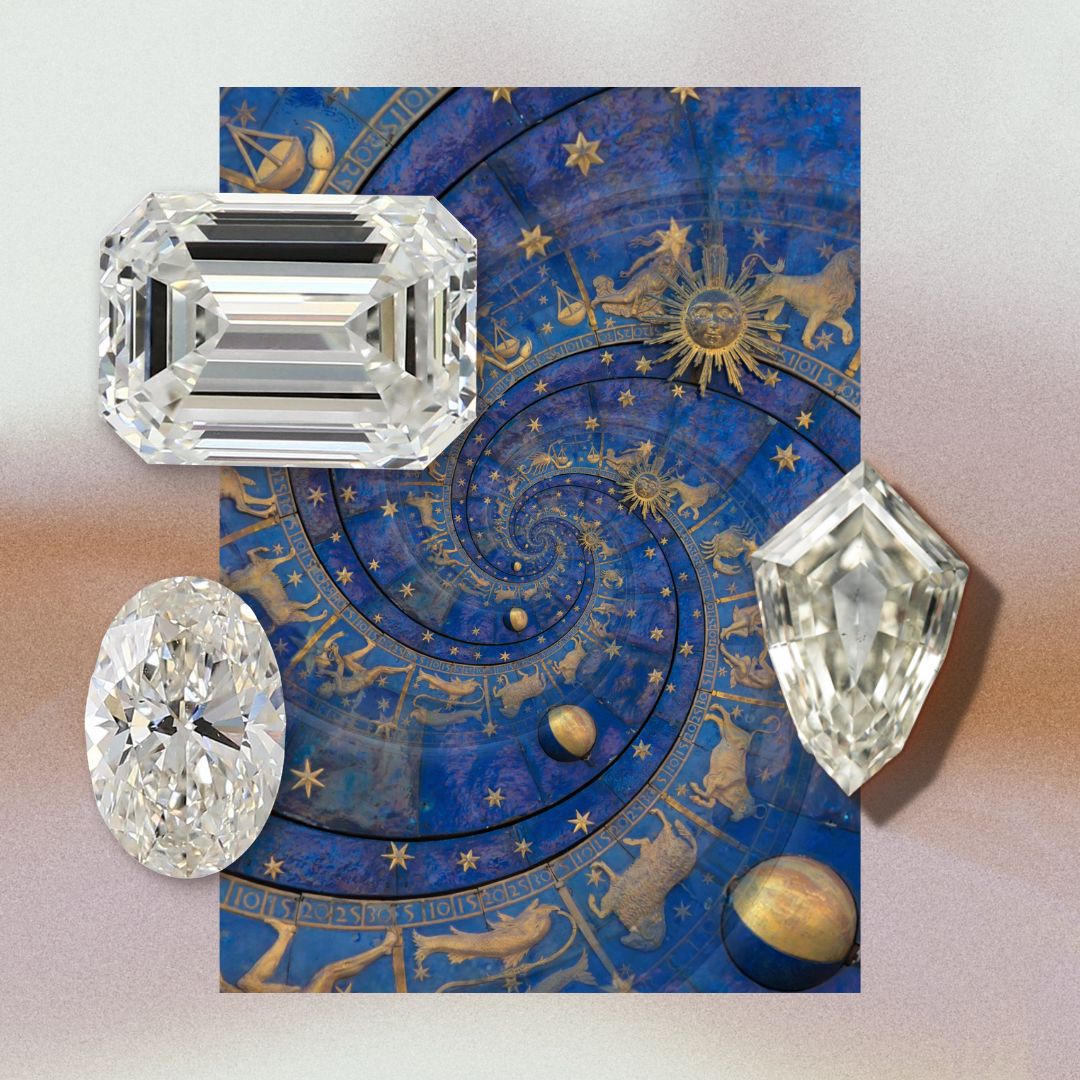
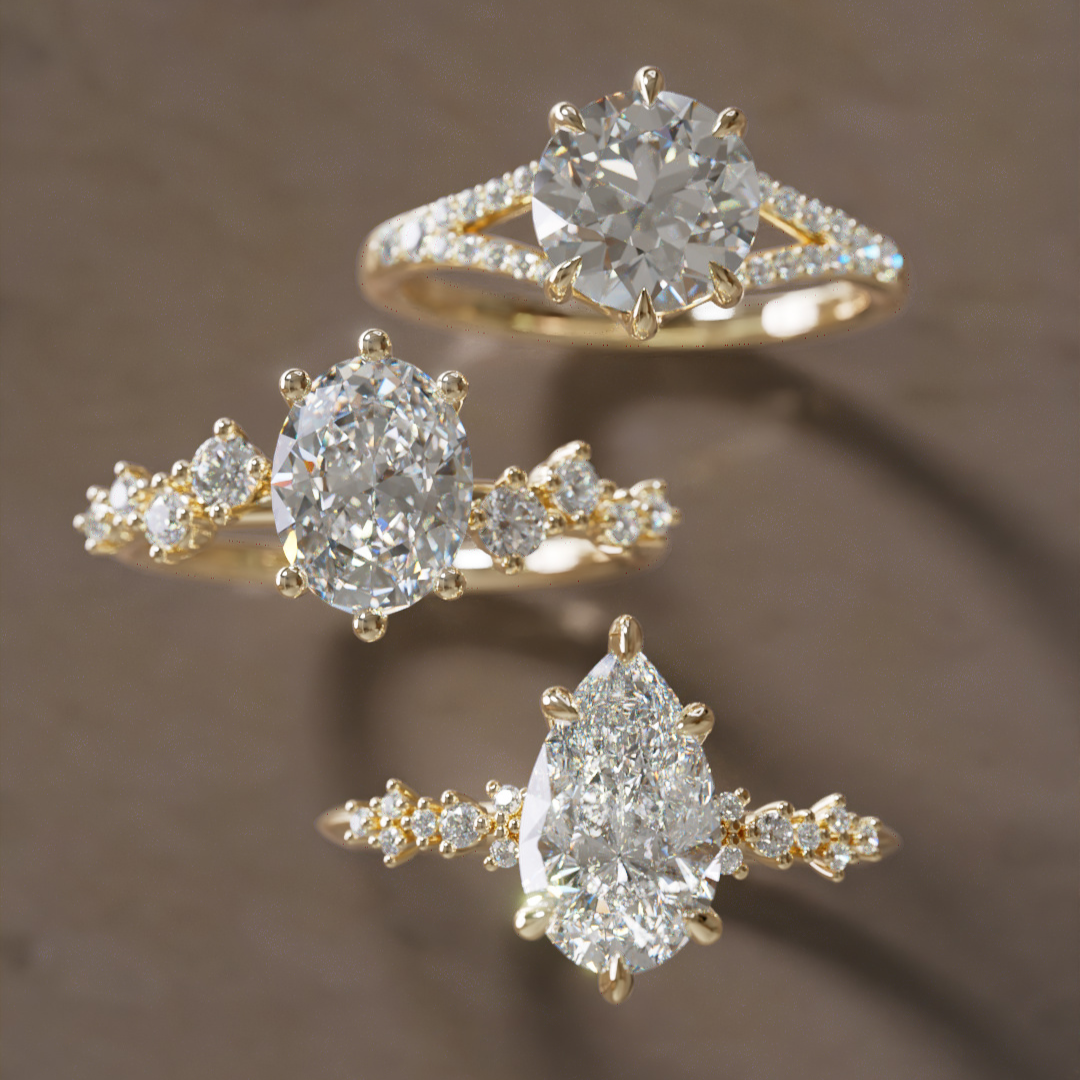
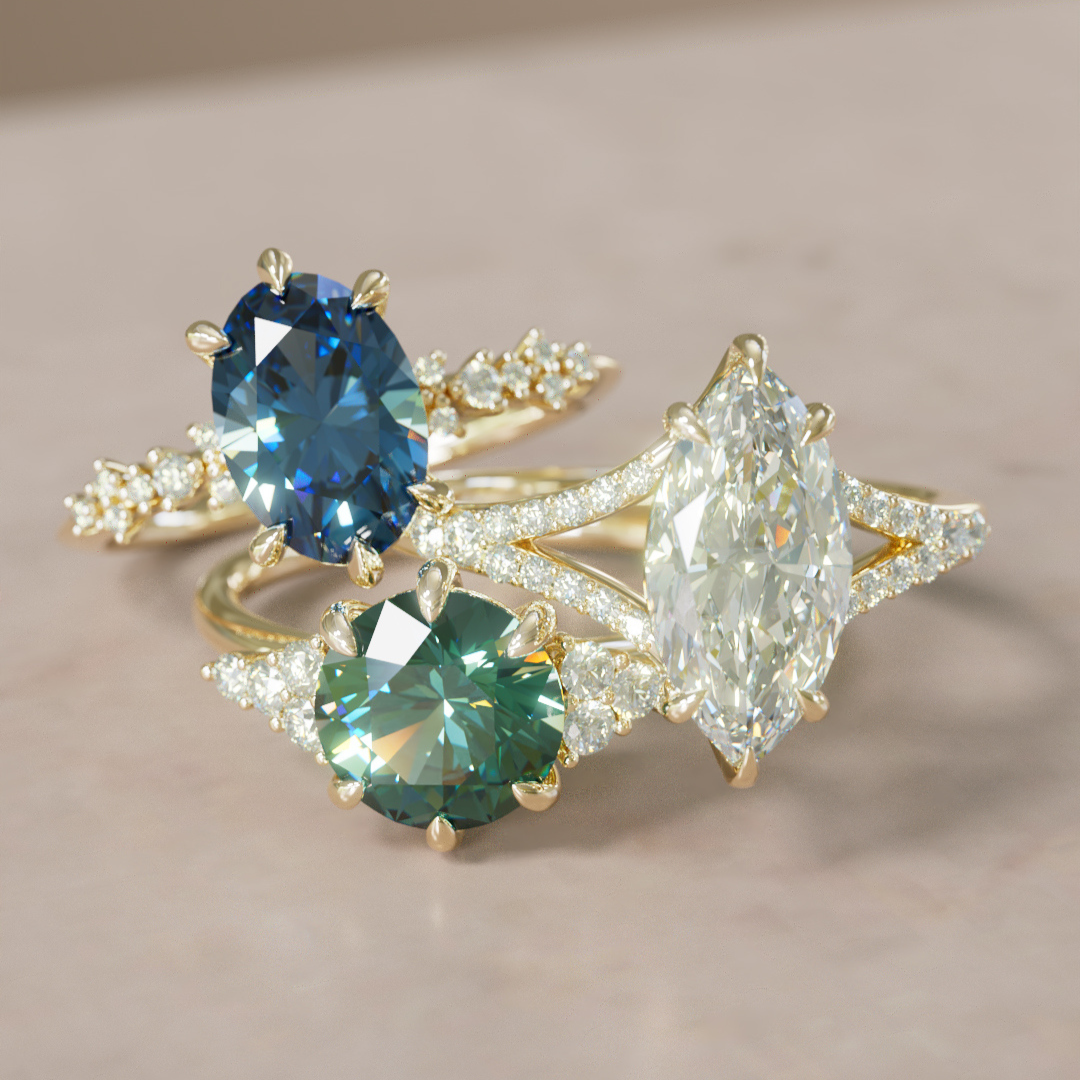
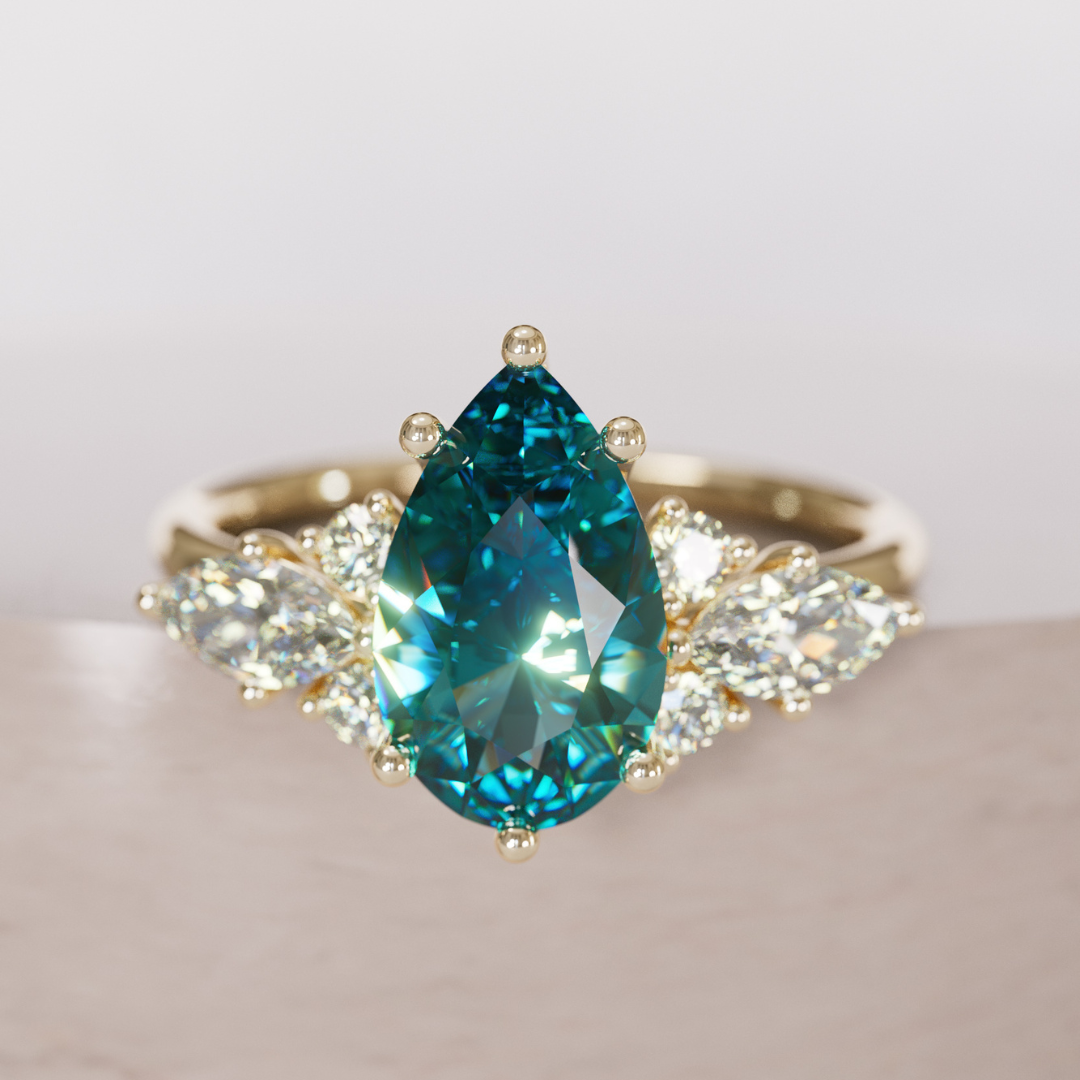
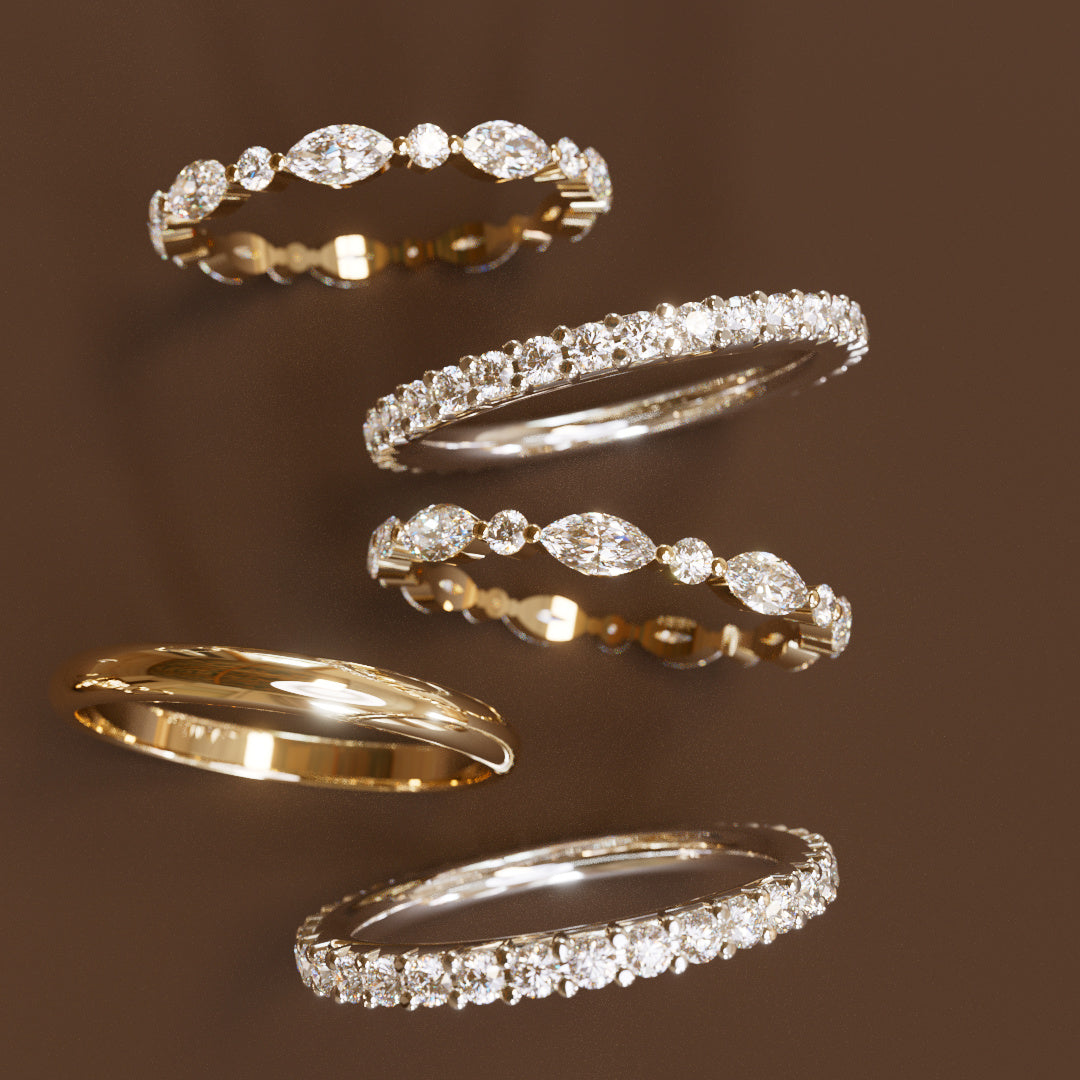

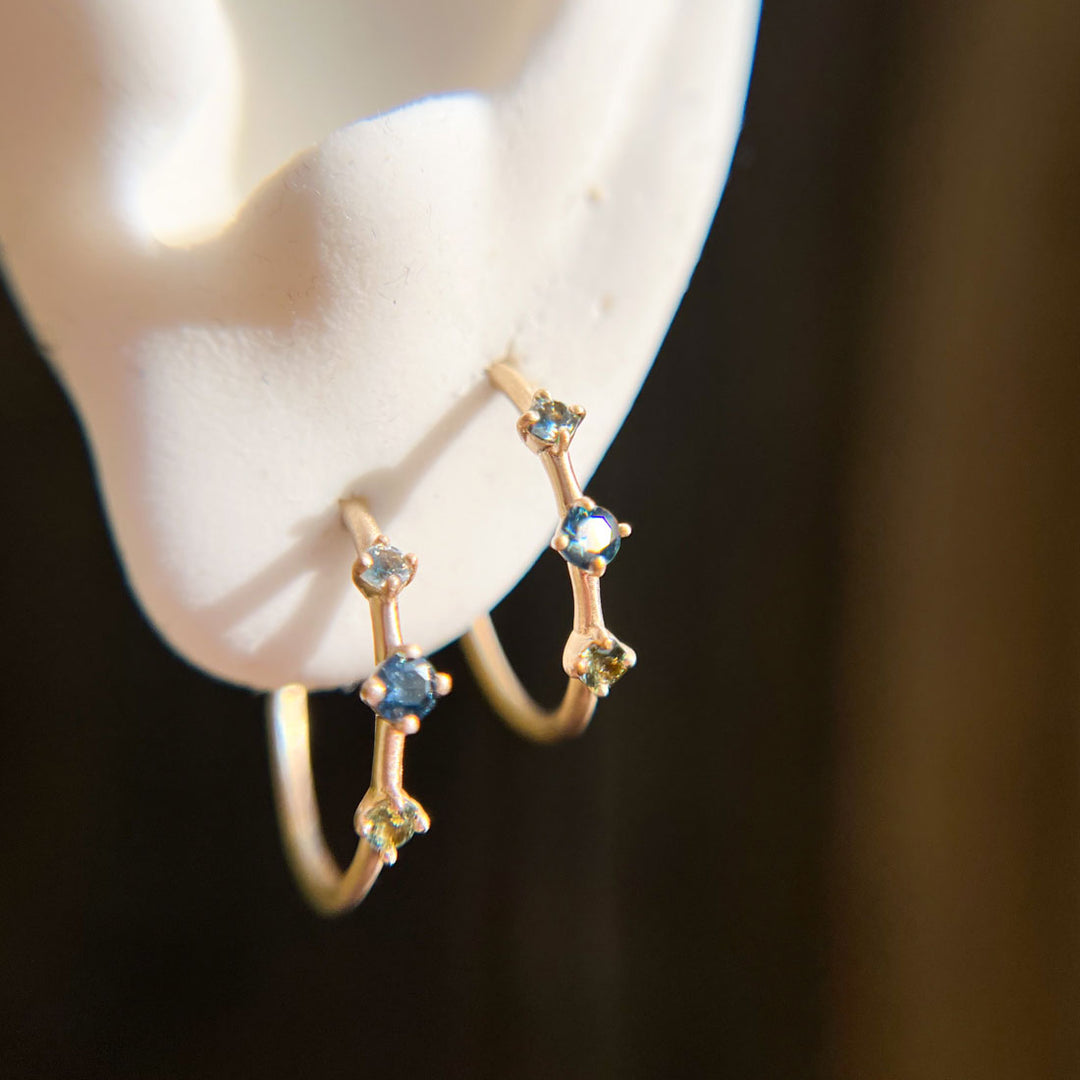
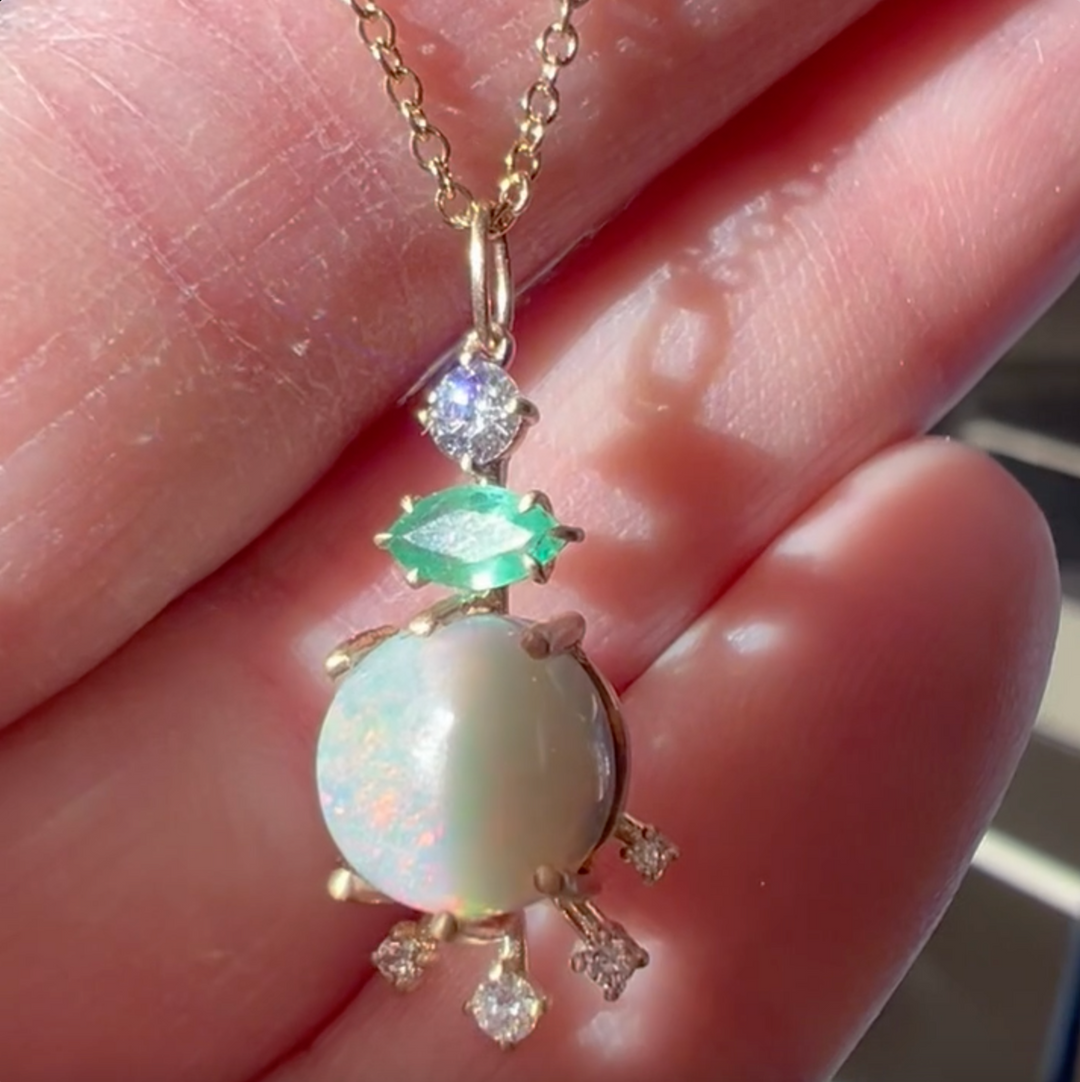

Leave a comment